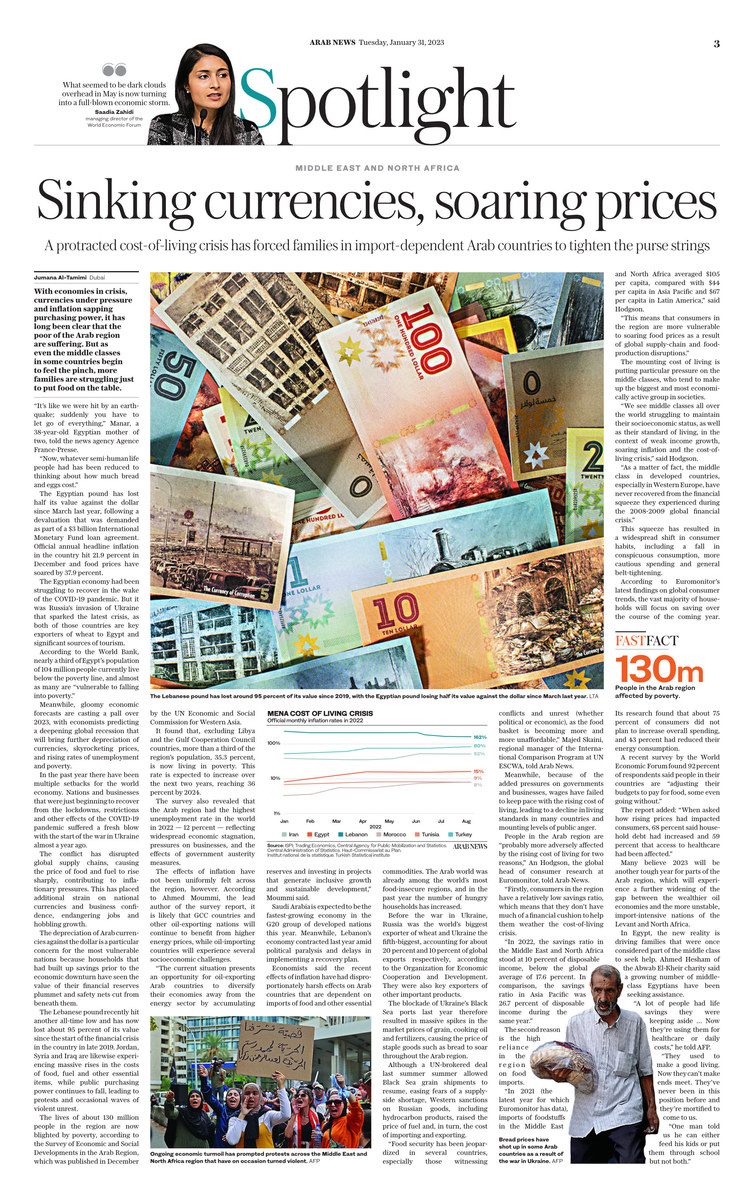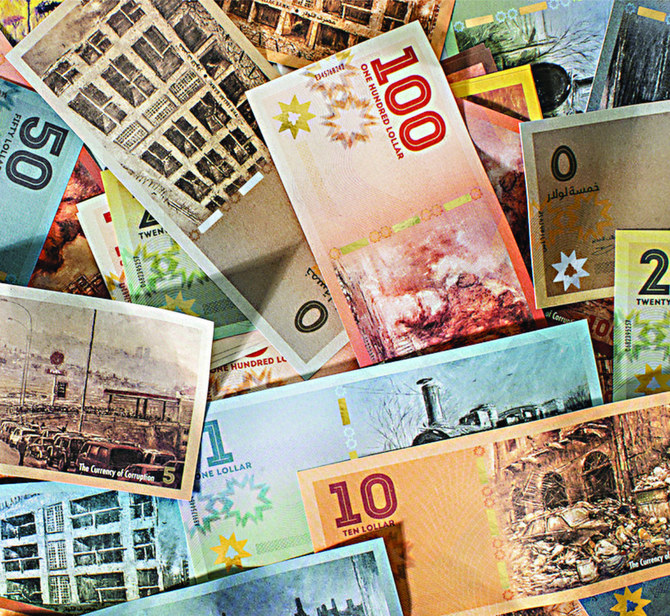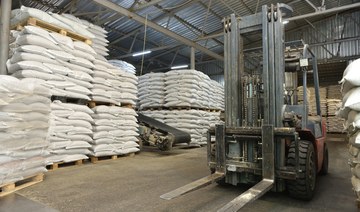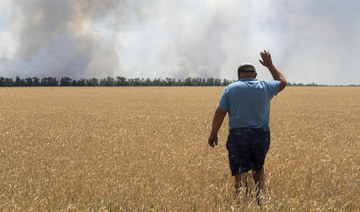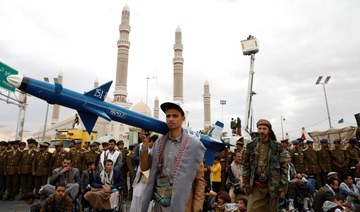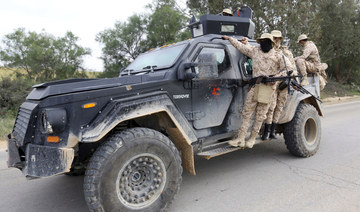DUBAI: With economies in crisis, currencies under pressure and inflation sapping purchasing power, it has long been clear that the poor of the Arab region are suffering. But as even the middle classes in some countries begin to feel the pinch as well, more families are struggling just to put food on the table.
“It’s like we were hit by an earthquake; suddenly you have to let go of everything,” Manar, a 38-year-old Egyptian mother of two, told the news agency Agence France-Presse.
“Now, whatever semi-human life people had has been reduced to thinking about how much bread and eggs cost.”
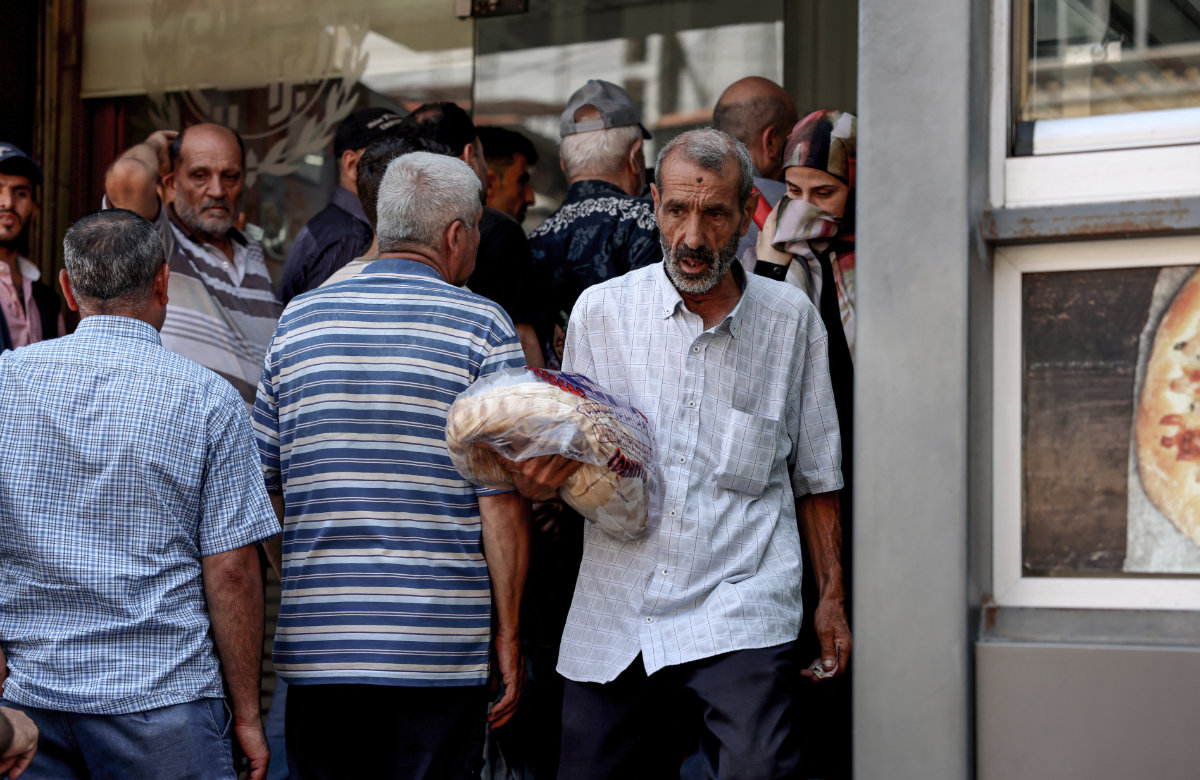
Bread prices have shot up in some Arab countries as a result of the war in Ukraine. (AFP)
The Egyptian pound has lost half its value against the dollar since March last year, following a devaluation that was demanded as part of a $3 billion International Monetary Fund loan agreement. Official annual headline inflation in the country hit 21.9 percent in December and food prices have soared by 37.9 percent.
The Egyptian economy had been struggling to recover in the wake of the COVID-19 pandemic. But it was Russia’s invasion of Ukraine that sparked the latest crisis, as both of those countries are key exporters of wheat to Egypt and sources of mass tourism.
According to the World Bank, nearly a third of Egypt’s population of 104 million people currently live below the poverty line, and almost as many are “vulnerable to falling into poverty.”
Meanwhile, gloomy economic forecasts are already casting a pall over 2023, with economists predicting a deepening global recession that will bring with it further depreciation of currencies, skyrocketing prices, and rising rates of unemployment and poverty.
In the past year there have been multiple setbacks for the world economy. Nations and businesses that were just beginning to recover from the lockdowns, restrictions and other effects of the COVID-19 pandemic suffered a fresh blow with the start of the war in Ukraine almost a year ago.
The conflict has disrupted global supply chains, causing the price of food and fuel to rise sharply, contributing to inflationary pressures. This has placed additional strain on national currencies and business confidence, endangering jobs and hobbling growth.
The depreciation of Arab currencies against the dollar is a particular concern for the most vulnerable nations because households that had built up savings prior to the economic downturn have seen the value of their financial reserves plummet and safety nets cut from beneath them.

A Lebanese activist displays mock banknotes called “Lollars” during a stunt to denounce the high-level corruption that wrecked the country in Beirut on May 13, 2022. (AFP)
The Lebanese pound recently hit another all-time low and has now lost about 95 percent of its value since the start of the financial crisis in the country in late 2019.
Jordan, Syria and Iraq are likewise experiencing massive rises in the costs of food, fuel and other essentials items while public purchasing power continues to fall, leading to protests and occasional waves of violent unrest.
The lives of about 130 million people in the region are now blighted by poverty, according to the Survey of Economic and Social Developments in the Arab Region, which was published in December by the UN Economic and Social Commission for Western Asia.
INNUMBERS
130 million - People in the Arab region affected by poverty.
12% - Unemployment rate in Arab region (highest in the world).
36% - Proportion of the Arab population in poverty by 2024. *
* excluding Libya and GCC countries
(Source: UN ESCWA)
It found that, excluding Libya and the Gulf Cooperation Council countries, more than a third of the region’s population, 35.3 percent, is now living in poverty. This rate is expected to increase over the next two years, reaching 36 percent by 2024.
The survey also revealed that the Arab region had the highest unemployment rate in the world in 2022, 12 percent, reflecting widespread economic stagnation, pressures on businesses, and the effects of government austerity measures.
The effects of inflation have not been uniformly felt across the region, however. According to Ahmed Moummi, the lead author of the survey report, it is likely that GCC countries and other oil-exporting nations will continue to benefit from higher energy prices, while oil-importing countries will experience several socioeconomic challenges.
“The current situation presents an opportunity for oil-exporting Arab countries to diversify their economies away from the energy sector by accumulating reserves and investing in projects that generate inclusive growth and sustainable development,” Moummi said.
Saudi Arabia is expected to be the fastest-growing economy in the G20 group of developed nations this year. Meanwhile, Lebanon’s economy contracted last year amid political paralysis and delays in implementing a recovery plan.
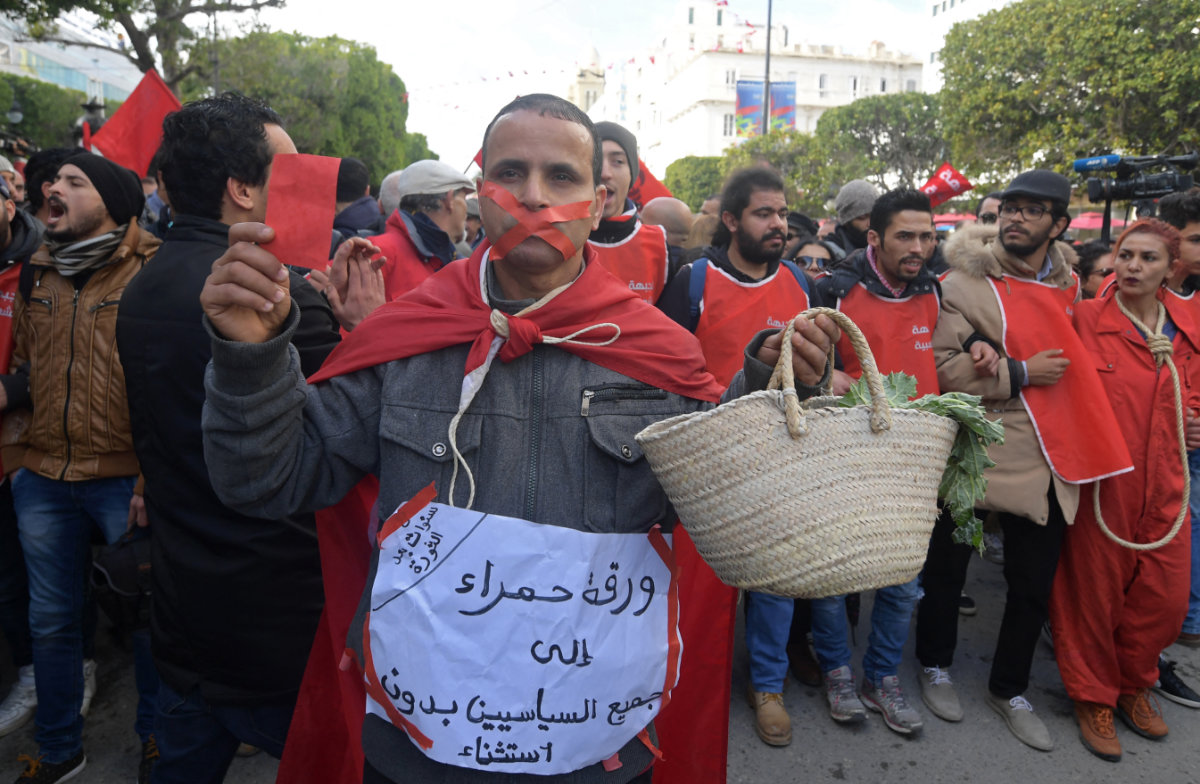
Tunisians take to the streets on January 14, 2019 to complain about the high cost of living. (AFP)
Economists said the recent effects of inflation have had disproportionately harsh effects on Arab countries that are dependent on imports of food and other essential commodities. The Arab world was already among the world’s most food-insecure regions, and in the past year the number of hungry households has increased.
Before the war in Ukraine began, Russia was the world’s biggest exporter of wheat and Ukraine the fifth-biggest, accounting for about 20 percent and 10 percent of global exports respectively, according to the Organization for Economic Cooperation and Development. Between them they were also key exporters of other important products.
The blockade of Ukraine’s Black Sea ports last year therefore resulted in massive spikes in the market prices of grain, cooking oil and fertilizers. This caused the price of staple goods such as bread to soar throughout the Arab region.
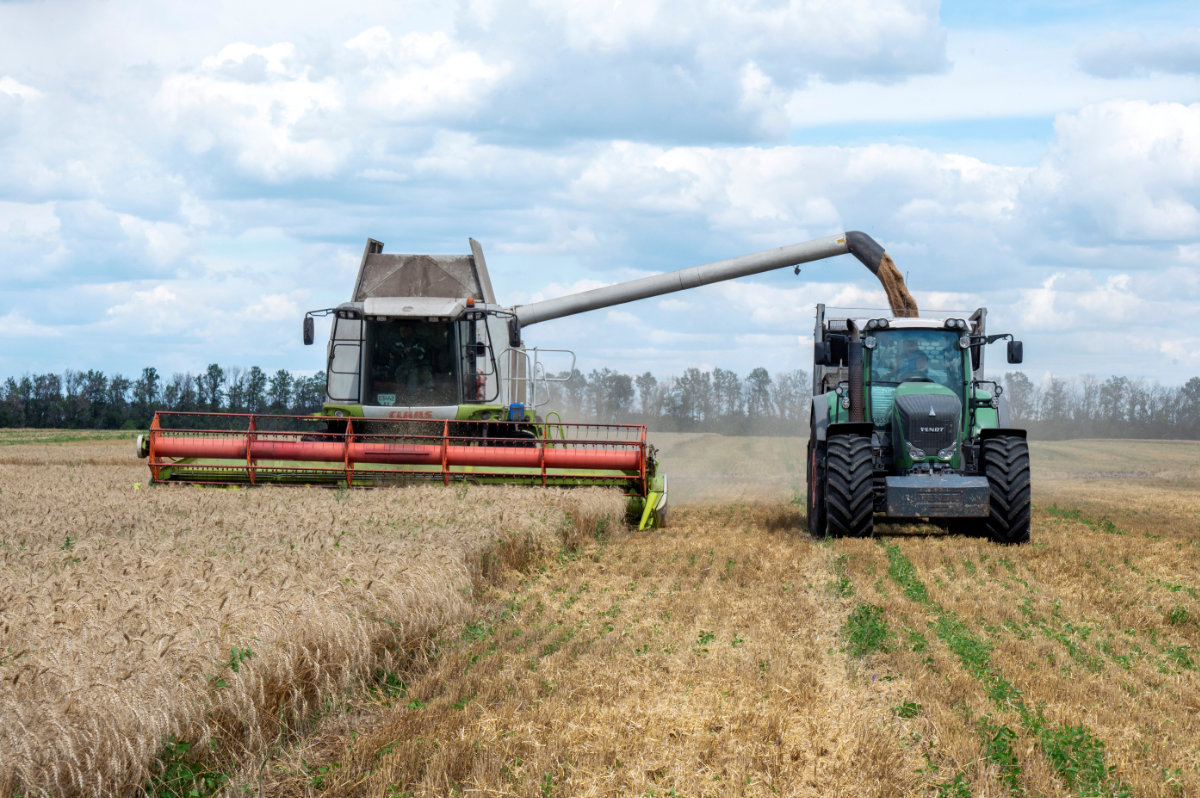
Russia's invasion of Ukraine last year disrupted the country's grain exports, jacking up food prices worldwide. (AFP)
Although a UN-brokered deal last summer summer allowed Black Sea grain shipments to resume, easing fears of a supply-side shortage, Western sanctions on Russian goods, including hydrocarbon products, raised the price of fuel and, in turn, the cost of importing and exporting.
“Food security has been jeopardized in several countries, especially those witnessing conflicts and unrest (whether political or economic), as the food basket is becoming more and more unaffordable,” Majed Skaini, regional manager of the International Comparison Program at UN ESCWA, told Arab News.
Meanwhile, because of the added pressures on governments and businesses, wages have failed to keep pace with the rising cost of living, leading to a decline in living standards in many countries and mounting levels of public anger.

People in the Arab region are “probably more adversely affected by the rising cost of living for two reasons,” An Hodgson, the global head of consumer research at Euromonitor, told Arab News.
“Firstly, consumers in the region have a relatively low savings ratio, which means that they don’t have much of a financial cushion to help them weather the cost-of-living crisis.
“In 2022, the savings ratio in the Middle East and North Africa stood at 10 percent of disposable income, below the global average of 17.6 percent. In comparison, the savings ratio in Asia Pacific was 26.7 percent of disposable income during the same year.”
The second reason is the high reliance in the region on food imports.
“In 2021 (the latest year for which Euromonitor has data), imports of foodstuffs in the Middle East and North Africa averaged $105 per capita, compared with $44 per capita in Asia Pacific and $67 per capita in Latin America,” said Hodgson.
“This means that consumers in the region are more vulnerable to soaring food prices as a result of global supply-chain and food-production disruptions.”
The mounting cost of living is putting particular pressure on the middle classes, who tend to make up the biggest and most economically active group in societies.
“We see middle classes all over the world struggling to maintain their socioeconomic status, as well as their standard of living, in the context of weak income growth, soaring inflation and the cost-of-living crisis,” said Hodgson.
“As a matter of fact, the middle class in developed countries, especially in Western Europe, have never recovered from the financial squeeze they experienced during the 2008-2009 global financial crisis.”
This squeeze has resulted in a widespread shift in consumer habits, including a fall in conspicuous consumption, more cautious spending and general belt-tightening.
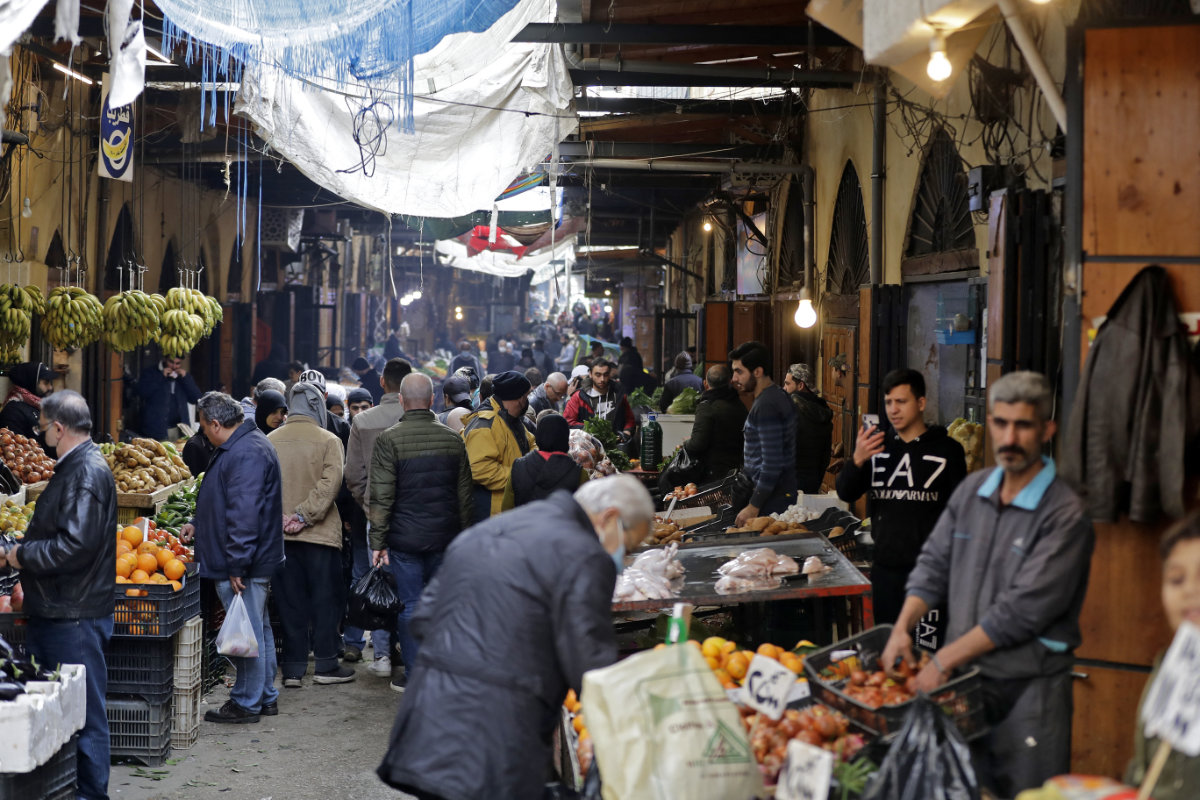
Lebanese shop at a fresh-produce market in Tripoli, north of Beirut, as grinding poverty pushes many back onto the streets to eke out a living. (AFP)
According to Euromonitor’s latest findings on global consumer trends, the vast majority of households will focus on saving over the course of the coming year. Its research found that about 75 percent of consumers did not plan to increase overall spending, and 43 percent had reduced their energy consumption.
A recent survey by the World Economic Forum found 92 percent of respondents said people in their countries are “adjusting their budgets to pay for food, some even going without.”
The report added: “When asked how rising prices had impacted consumers, 68 percent said household debt had increased and 59 percent that access to healthcare had been affected.”
Many believe 2023 will be another tough year for parts of the Arab region, which will experience a further widening of the gap between the wealthier oil economies and the more unstable, import-intensive nations of the Levant and North Africa.
In Egypt, the new reality is driving families that were once considered part of the middle class to seek help. Ahmed Hesham of the Abwab El-Kheir charity said a growing number of middle-class Egyptians have been seeking assistance.
“A lot of people had life savings they were keeping aside … Now they’re using them for healthcare or daily costs,” he told AFP.
“They used to make a good living. Now they can’t make ends meet. They’ve never been in this position before and they’re mortified to come to us.
“One man told us he can either feed his kids or put them through school but not both.”
